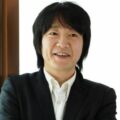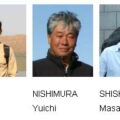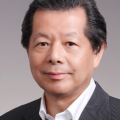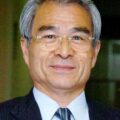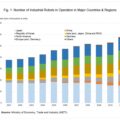Feature Article on Scientific Advice: Between Science and Administration The Politics of Scientific Advice
(1) Is It Reactionism?
Members of the Subcommittee that deliberated on the draft of the Basic Energy Plan were replaced following a government changeover. In a blatant selection of personnel, the LDP almost exclusively appointed new experts who advocate maintaining or promoting nuclear power generation. The Agency of Natural Resources and Energy has already sent officials to an LDP working group meeting for explaining the draft of the Basic Energy Plan, wherein LDP-affiliated Diet members raised questions about the draft, which positions nuclear power as an important base power source and spells out steady promotion of the nuclear fuel cycle.The Fukushima Daiichi Nuclear Power Plant accident on 11 March 2011 has been taken as an opportunity to question the ideal form of giving scientific and expert advice to administrative authorities. A variety of criticism has been heard and many proposals made concerning this question, but to me it appears that scenes that were once familiar have recently returned.  Developments in the course of deliberation of the draft of the new Basic Energy Plan by the Advisory Committee for Natural Resources and Energy can be seen as a good example of this. Discussions during the period when the Democratic Party of Japan (DPJ) was in power have disappeared. The DPJ worked hard to reflect its denuclearization line in energy policy, but the current government led by the Liberal Democratic Party (LDP) appears to be advancing examination of the new Basic Energy Plan with a view to returning to making active use of nuclear power plants. The Subcommittee on Basic Policies under the Advisory Committee for Natural Resources and Energy has already authorized such pro-nuclear power policy as an advisory panel of experts. And the Cabinet may have approved the policy by the time this article is published.
Developments in the course of deliberation of the draft of the new Basic Energy Plan by the Advisory Committee for Natural Resources and Energy can be seen as a good example of this. Discussions during the period when the Democratic Party of Japan (DPJ) was in power have disappeared. The DPJ worked hard to reflect its denuclearization line in energy policy, but the current government led by the Liberal Democratic Party (LDP) appears to be advancing examination of the new Basic Energy Plan with a view to returning to making active use of nuclear power plants. The Subcommittee on Basic Policies under the Advisory Committee for Natural Resources and Energy has already authorized such pro-nuclear power policy as an advisory panel of experts. And the Cabinet may have approved the policy by the time this article is published.
However, Director General Ueda Takayuki of the Agency reportedly made a statement to the effect that the Agency had absolutely no intent of revising the current draft. The timetable for forming a decision also suggests the approach of moving matters toward a foregone conclusion. Such an approach has not been unusual in the policy-decision process in Japan. However, I must say such a quick return to this old-fashioned approach to nuclear power policies rife with problems and controversies was stunning.
The point at issue in this article, however, is the ideal form of scientific advice. Subcommittee Chairman Mimura Akio’s comments at a meeting of the Subcommittee on Basic Policies (13th meeting, held 13 December 2013) deserved our attention in that respect. Several members of the Subcommittee raised objections to the draft of the Basic Energy Plan, which was heavily inclined toward a return to promotion of nuclear power generation, and asked that multiple other plans, focused on the question of how nuclear power generation should be in the future, be stated at this meeting held to assemble the draft plan. At the same meeting, Mimura said, “As experts, we will put this together as much as possible,” and “It would be a shame to write the draft in a way that asks for readers’ consideration after citing numerous possibilities.” Mimura managed to have the authority to make final adjustments entrusted to him (and the secretariat), and closed the deliberation concluding that he had largely gained approval from Subcommittee members.
The opinion that it is a role of experts to come up with a summary was heard and criticized quite frequently in the aftermath of the Fukushima Daiichi Nuclear Power Plant accident in connection with questions such as the state of dispersion of radioactive substances and the outlook for their health impact. The criticisms questioned matters without clear agreement regarding scientific knowledge and that involve value judgment in addition to mere scientific knowledge.
Under the DPJ administration, multiple deliberative councils and similar bodies conducted examinations for reviewing energy policies. For national debates, the DPJ government organized meetings for exchanging views and conducted deliberative opinion polls. However, their course of development clearly shows that opinions were not easily consolidated. The agreement that a traditional policy is reasonable has already collapsed amid the discussion of the nuclear fuel cycle cost, including the cost of disposing of radioactive waste. Experts have varied opinions regarding this issue. Unifying opinions in a direction that does not overly differ from traditional policy despite this situation is definitely an arbitrary conclusion. The question is: Isn’t the role of experts in charge of such advice a priority issue we must face in the period after 11 March 11 2011, along with the suitability of consolidating opinions into a consensus by discarding diverse views and opinions?
(2) Japan’s Politics Based on Deliberative Councils
Be that as it may, simplification of expert knowledge and application of such knowledge to suit policies intended by administrative authorities have been de facto conditions in the policy decision process in Japan. Advisory organs such as deliberative councils participated in by scientists and other experts have also been criticized as covers for administrative authorities for some time.
From a legal standpoint, deliberative councils and similar bodies are just individual organs comprising an administrative organization. As such, their independence is not secured in the same way as groups of external experts. The selection of experts called to serve in deliberative councils and similar bodies, their proceedings and the like are basically decided through adjustments between office staff members (in charge of administration) and a chairperson (and certain experts around the chairperson). Even roles such as those of supporters and questioners are reportedly prepared and assigned to deliberative council members to leave on record for members engaged in heated discussions in cases where a policy is likely to invite debate. In short, for administrative authorities, advisory organs such as deliberative councils are just bodies that supply the sorts of answers they want to hear.
The theme of evidence-based policy planning has been discussed and studied in Japan, but there is a large gap between these activities and what actually occurs. Scientific inquiry that produces evidence becomes meaningful when there are appropriate procedures for applying the evidence to policies, but a bias or flaw in policy decisions can lead to a serious social conflict, particularly in cases in which there is risk of a relatively high level of uncertainty about scientific knowledge. In fact, this is the situation the nuclear accident on 11 March 2011 forced us to confront. There are scientists who developed the desire to avoid giving advice to administrative authorities because greater society may ask them to account for the outcome of their advice in unimaginable ways.
(3) Points Regarding Scientists Brought to Justice
The criminal suit filed against scientists in connection with the L’Aquila earthquake was a case that, in the most severe of ways, caused us to reconfirm such a situation surrounding the position of experts. After this large-scale (6.3 on the Richter scale) quake in 2009 in L’Aquila, central Italy, local residents filed a criminal suit against administrative officials (in charge at the National Commission for the Forecast and Prevention of Major Risks) and experts (seismologists), accusing them of issuing a safety declaration in the name of administrative authorities immediately before the main quake — a factor that allegedly caused earthquake damage to magnify. Developments in this lawsuit were reported as needed in Japan, and in them the responsibility of experts was questioned as the scientists and others were indicted in May 2011. The lawsuit thus became an event that scientists in Japan could not ignore. They seem particularly shocked by the lower court ruling in October 2012 because it mercilessly sentenced the scientists to six years in prison.
There are problems in this court decision imposing criminal penalties on experts who only provided scientific advice, but the legal responsibility of scientists is not a subject I want to take up in this article. In this case, it seems administrative officials who wanted to issue a declaration of safety replaced the scientists’ opinion that the chances of a large-scale earthquake were extremely low with information that such an earthquake would not occur. We cannot say the scientists’ views were wrong. They also insisted that the declaration of safety was not something they wanted to issue. Meanwhile, administrative officials denied their responsibility, stating that none of the scientists opposed the declaration. Such an argument must appear like buck-passing to the scientists. The view that scientists fell victim to the way administrative officials handled the matter is understandable.
Local residents, however, see it differently. They asked administrative officials and scientists to inform them of the level of danger, instead of guaranteeing safety. They take the view that administrative officials and scientists are equally responsible for the mistake of causing them to lift their guard against risks with inappropriate information control in response to uncertain conditions. In other words, risks are discounted through arbitrary use of scientific knowledge and exclusion of differing opinions. A potential problem between scientists and administrative authorities and society became obvious in the form of post-damage condemnation by citizens.
A difficult question exists herein: whether in the face of uncertainty it is acceptable for scientists to supply information within their knowledge as mere advice in response to an administrative decision. But an interesting point in the L’Aquila case is that an administrative official found guilty was himself a scientist. The official directly in charge of the safety declaration, who was convicted with the seismologists, held a doctorate in fluid mechanics. This official was in the top position at an Italian national research institute for environmental science after his removal from the disaster prevention branch. Does thought based on one’s position take precedence to this extent in a case in which a person assumed to possess scientific thinking acts as an administrative official? Or is it an everyday phenomenon for a position to go beyond scientific thinking?
The power of mass media also appears to have affected the simplification of information for the safety declaration in L’Aquila, but there was a noteworthy point found in Japanese media reports on the lawsuit: how mass media viewed scientific advice. In other words, many media outlets in Japan, including newspapers, called this court case an earthquake prediction trial. The description evidently led to misunderstanding that a prediction error committed by seismologists (i.e., a scientific error) was questioned in the trial.
I think all the above problems resulted from an assumption that correct policies are guided when science offers correct information, or an assumption that society must be controlled with such logic. The Japan Broadcasting Corporation (NHK) began its documentary on the L’Aquila court case with a voiceover, saying, “Should we give priority to panic prevention or should we offer information to citizens even if its accuracy is uncertain?” This suggestion of a dichotomy between information control and social confusion indicates that society also shares the assumptions stated above. I would like to confirm here that thought based on such simple assumptions is connected to the approval of the expert position and its justification found within the draft of the Basic Energy Plan.
(4) Science Versus Science
New issues after the 3/11 nuclear disaster are forcing us to depart from thinking that simplifies scientific and expert advice. Is it possible not only for scientists but also the receivers of scientific knowledge to prioritize scientific thinking over position-based thinking, instead of handling the relations between science and policy with a unilinear model? Isn’t it possible for scientists to contribute to ways for using scientific knowledge without only providing data or guiding policy decisions?
The active fault assessment by the Nuclear Regulation Authority of Japan (hereinafter the “Japan NRA”) is a case in point for considering these questions. In the course of its reassessment of nuclear power plants the group has recognized a number of active faults that lie directly beneath or near nuclear reactors. Meanwhile, power companies have indicated their own assessment that no active faults exist, and installed and operated respective plants by securing state approval of their assessment. They have also opposed the Japan NRA’s opinion, fearing that new assessment may pave the way for decommissioning. The way of facing suspected risks is a question under the condition that firm scientific judgment on the presence of active faults is not possible.
To state further, fault assessment and judgment on nuclear power plant restarts are not connected with each other so simply. Advisability of safety measures (a technical factor) and advisability of post-disaster evacuation plans (a social factor) will also add to geological knowledge. Accordingly, discussions will go beyond whether or not suspected faults are active. How to apply expert knowledge to uncertain problems and whether or not scientific advice can connect with themes such as higher policy decisions and decision-making involving concerned parties are points at issue that deserve our attention when considering where ways for using scientific advice will go from here.
A situation that differs from reactionary moves described earlier has emerged in connection with this problem. This situation appears new at first sight. People not in favor of the strict fault assessment that the Japan NRA took time to come up with are loudly questioning the scientific nature of the assessment. Nuclear power advocates who have called those opposing nuclear power unscientific are stepping up their criticisms of the Japan NRA, calling the group unscientific and even reckless. Their criticisms include remarks far removed from risk control. The statement the mayor of Tsuruga made on 10 December 2012, “innocent until proven guilty,” is a classic example of such remarks.
I save my judgment on that statement because it is from a politician, but similar criticisms have been heard among researchers involved in nuclear power. They say that the Japan NRA’s demands on power companies in connection with fault assessment lack scientific grounds, that the Japan NRA is trying to perform meaningless verification, and that a bias among experts in charge of inspections toward researchers specializing in fields that have played no part in the safety assessment of nuclear power plants (such as tectonic morphology) are the cause of these problems.
This is a line of argument that treats the way fault-assessment science should be as a point of issue on the surface. However, in substance, it is the type of assertion that people call sound science. This is an attitude based on a stiff view of science, such as the one that guided the U.S. response to global warming into a no-regret policy. In other words, it is a stance of taking no action unless clear scientific evidence exists. In other words, sound science ignores incomprehensible phenomena by treating them as nonexistent.
The Japan NRA’s attitude of ascertaining the possibility to say that no fault risk exists at each nuclear reactor site is an obstacle to sound science advocates. In their criticisms, they admit the absence of such risk is hard to prove. However, sound science ignores this point because it considers science within a scope in agreement with its goals of policy maintenance and guarantee of economic rationality.
Honestly, those who criticize the Japan NRA as unscientific have not changed how they view and use science after the Fukushima accident. (For that reason, I said above, “This situation appears new at first sight.”) However, the meaning of science has become a point of contention once again since factors that influence policy decisions have changed their relationships. This is an interesting phenomenon.
(5) Distance Between Administration and Science
We need a system design that reflects the diversity of scientific knowledge, that is to say, one that relativizes a single voice (a consensus among experts) in order to overcome the simple model that the input of accurate scientific knowledge produces correct policies. I have heard the opinion that “citizens will be confused by different experts saying different things” after the nuclear disaster. This view then went on to ask experts to come up with a consensus for avoiding such risk. This way of thinking led the Japanese government to consider ideas such as establishing a scientific adviser system. However, consolidation of opinions in this manner is not the same as having their singleness. If anything, we seek a means of producing an effective unified voice based on diverse views. Such a view does not equate to consensus built by eliminating different opinions.
To state further, scientists and other experts for whom scientific thinking is their focus have a role of avoiding situations wherein certain scientific knowledge is inversely chosen as a result of policy circumstances. In reality, such reversal takes place frequently. Even experts’ active participation in this reversal is suspected as a condition. As observers have pointed out, the tsunami height estimated for safety measures at a nuclear power plant on the Pacific coast had been kept low. The assessment by the Tsunami Evaluation Subcommittee of the Japan Society of Civil Engineers, which had been regarded as the scientific basis for the low tsunami estimate, is an example of this condition. In this case, it is not clear why the opinion of the Society was adopted instead of the opinion of an expert organization that had officially engaged in scientific verification that led to tsunami height estimates for nuclear power plants (Headquarters for Earthquake Research Promotion set up at the Ministry of Education, Culture, Sports, Science and Technology). The attitude of administrative authorities must be questioned before the responsibility of scientists and other experts. However, putting such procedural problems aside, response could have differed if the Subcommittee at the Society performed scientific verification more cautiously.
Different views on the assessment in fact do seem to have existed within the Subcommittee.
Nevertheless, I feel the Japanese government looked for another scientific basis without adopting the relevant scientific knowledge if the Tsunami Evaluation Subcommittee of the Japan Society of Civil Engineers estimated the tsunami height to be greater. For that reason we must of course change the way administrative authorities approach scientific advice of this type, but these authorities do not change their behavioral patterns easily. Scientists and other experts are expected to encourage administrative change by reforming the way they produce scientific advice.
To what extent scientists and other experts can realize an independent framework for scientific advice that differs from the traditional deliberative council system holds the key in that respect. Put differently, scientists and other experts must increase the visibility and boost the authority of scientific advice provided by organizations that remain independent, instead of bodies like deliberative councils that are part of an administrative organization. In concrete terms, they are expected to upgrade systems for independent scientific advice by taking advantage of existing frameworks such as the Science Council of Japan and joint organizations by multiple academies and societies.
Reform of deliberative councils and similar bodies is also essential, with choice of experts as the particular focus. It is acceptable for Japan to consider a system like the British commissioner system for appointing public officials, in which assessors independent from central government offices choose members of deliberative councils and similar bodies from among candidates openly recruited from various circles. Of course we cannot always expect such independence and third-party systems to achieve desirable results. A body like a third-party organ will also ultimately fall under political influence somewhere along the line. Accordingly, we can only expect the pattern of gaining more desirable scientific advice under the influence of multiple organizations and systems.
(6) Do Things Scientific Equal Things Political?
I intended to portray a sort of tension between administrative authorities and science (scientists) in this article. As an option, citizens could take part in the policy decision process themselves and expect administrative authorities to make reforms as well (even though this option seems difficult). In fact, aggressive initiatives have now turned into an urgent issue. Difficult questions await discussion based on scientific advice on related social factors, in addition to the restricted cost of measures, in fields such as reexamination of disaster prevention plans in response to revised estimates for earthquake and tsunami damage, and regional nuclear disaster prevention plans under consideration following the Fukushima Daiichi Nuclear Power Plant accident. These measures against risk should be decided through discussions in which local residents take part as concerned parties. Such discussions will improve administrative authorities’ capacity to respond to risk.
In connection with these discussions, citizens, compared with scientists and other experts, may also be able to think much more flexibly based on evidence. Looking at the results of the deliberative opinion poll on energy policies the DPJ government conducted, participants changed their opinions in a complicated manner, though news media that simply reported people who support zero nuclear power grew. The results show that as discussions progressed, participants changed their choice from the three options for the ratio of nuclear to non-nuclear generation offered by the government.
Based on such a finding I venture to raise a question: Isn’t the attitude of scientists and other experts more rigid, if anything? These people are policy stakeholders. They also stick to their knowledge and opinions. They cannot easily change their views and attitudes for those reasons. This produces a conflict of interest for scientists and other experts. In other words, at a glance, scientific advice certainly has a problem that appears to be a tense relationship between science and administration. However, I think we should say the different understanding of the relationship between science and administration by scientists and other experts is the very source of this relationship.
It is not overly difficult to present principles for scientific advice in abstract and general terms. A number of proposals have also already been made in Japan based on precedents in other countries. In these proposals, points such as conflicts of interest, ethics for communication with society, ideas for organizational and system design for groups of scientists, and ways for setting and keeping distance from administrative authorities are examined in detail. The problem is to what extent scientists and other experts can face a tense political relationship among themselves in actualizing such ideas and principles. This is probably an extremely difficult challenge for scientists and other experts who consider their jobs as something located the furthest distance from politics and things political.
Translated from “Tokushu Kagakuteki Jogen: Kagaku to gyosei no aida — ‘Kagakuteki Jogen’ no seijigaku (Feature Article on Scientific Advice: Between Science and Administration — The Politics of Scientific Advice),” Kagaku, February 2014, pp. 0185-0190, ©2014 by Onai Takayuki. Reprinted by permission of the author c/o Iwanami Shoten, Publishers. [February 2014]
